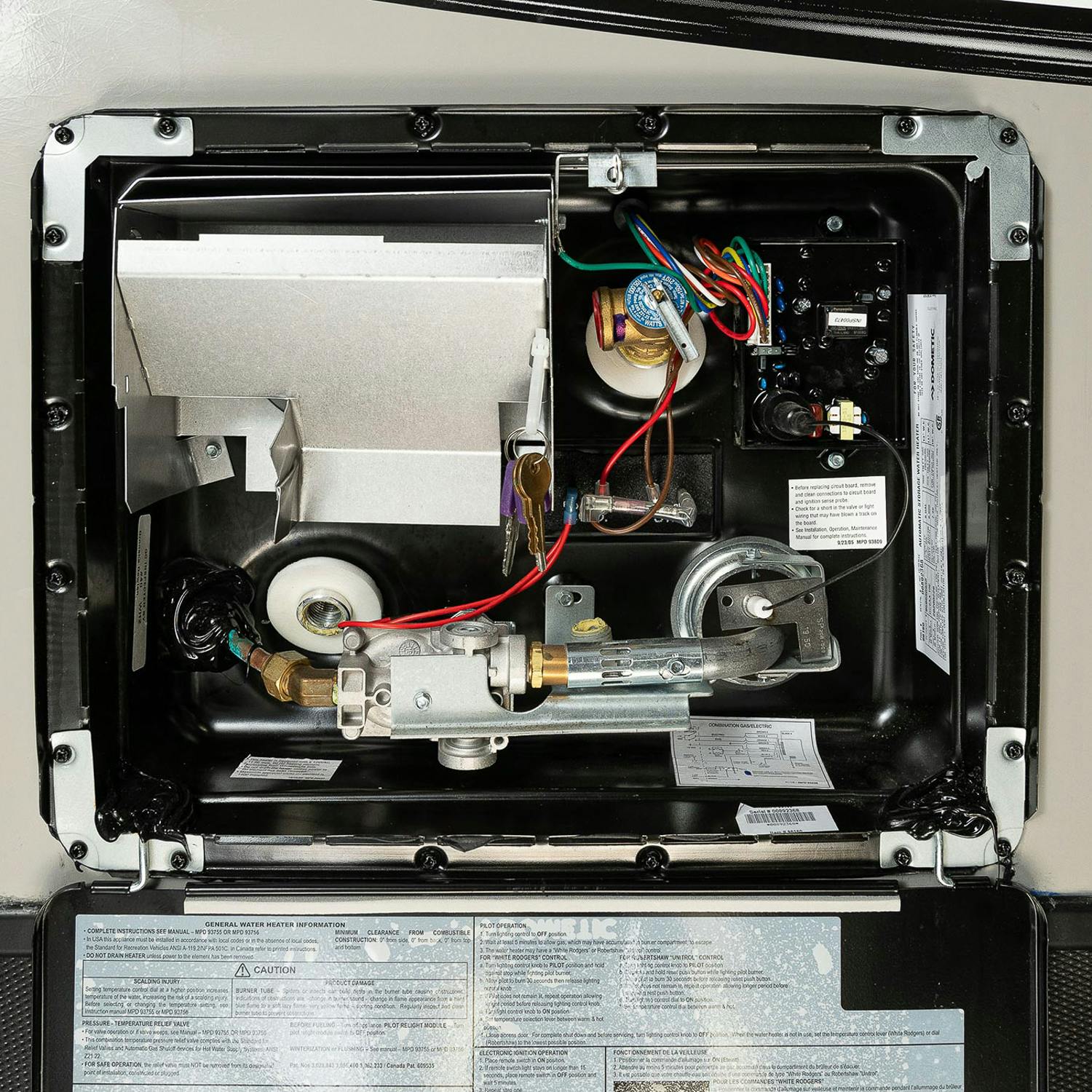Complete Guide to RV Holding Tanks: Usage, Maintenance, and Tips for First-Time Campers
Understanding everything about your new RV takes time and resources. Keystone RV continues to provide information at your fingertips with the First Time Camper Series. Master Technicians, Matt and Bart, explain everything you need to know about your RV holding tanks and provide quick maintenance tips. They discuss and answer: What are they? Where are they located? How to use and take care of them.
What Are the Holding Tanks in My RV?
- Fresh Water Tank: This tank is equipped with a gravity fill hose, a supply for the water pump, and a fresh tank vent to prevent swelling when full. It also includes a low point drain for emptying the tank during winterization or servicing. Only use potable water in the freshwater system.
- Gray Tank: Used for kitchen sink and shower wastewater, the gray tank may vary in number depending on the unit. It features an inlet on the top and a vent opening that goes to the roof to remove odors and prevent pressure build-up. The tank will have a termination valve for draining.
- Black Tank: Similar to the gray tank, the black tank has an inlet for toilet waste and a vent opening to manage odors and pressure. It also includes a termination valve.
Similarities Between the Holding Tanks
- The fresh tank carries fresh water to the pickup, while the gray and black tanks slope to direct wastewater to the termination.
- Each tank has sensors, and a wire harness connected to the monitor panel inside the RV, which reads the tank levels in thirds.
- Some tanks may have tank heaters to prevent freezing, but this varies by brand.
Where Are the Tanks Located in My RV?
Tank locations vary by floorplan. The freshwater tank might be installed above the floor (e.g., in a cabinet or under a bed) or as part of a storage area. The tanks are designed to fit between the RV’s frame rails below the floor.
Important Note: All terminations are typically located on the driver's side of the RV, often from the middle to the back. Knowing this is crucial for campsite preparation, as it helps you determine if you need to back into the site or if it’s a pull-through site.
How to Use the Holding Tanks
Refer to our First Time Camper series for an introduction and review.
- Add Tank Chemicals: Use appropriate tank chemicals in both gray and black tanks before using and after dumping.
- Flush with Plenty of Water: Always use ample water when flushing the toilet. This ensures good flow when dumping tanks, whether dry camping or at a campground with full hookups.
- Use RV Toilet Paper: Only use single-ply RV toilet paper that dissolves quickly.
- Keep Termination Valves Closed: If you have full hookups, do not leave the termination valves open. This prevents solids from sticking to the tank and causing clogs or odor issues. Always wait until the tank level warrants dumping.
How to Maintain Your Holding Tanks
- Fresh Tank Maintenance: Keep the freshwater system clean by sanitizing it before first use and annually or when unused for extended periods. This helps prevent bacterial or viral growth.
- Gray and Black Tank Maintenance: Use tank deodorants and clean the tanks regularly. Follow the manufacturer's instructions for deodorant usage, as dirty tank probes can cause false readings on the monitor panel. Proper use of chemicals and adequate water flow are crucial for effective maintenance.
For detailed instructions, refer to Chapter 10 of your Owner’s Manual,
Happy trails and happy tanks! We hope this guide helps you understand your RV holding tanks better and how to keep them performing well.
Notice: Do not leave the RV unattended during these processes. Ensure the black tank termination valve is open and your sewer hose is connected to an approved dump station. Overfilling the black water tank can lead to serious issues and resulting damage is not covered by warranty.
Disclaimer: The information contained in this article is deemed to be true and accurate at the time of publication. However, due to the evolving nature of our products and services, there may be changes or updates that occur after this article was published. We encourage users to verify the contents and consult with their dealer or Keystone RV for the most current information. If you have any questions or require further clarification, please do not hesitate to contact your dealer or reach out to Keystone RV directly.



